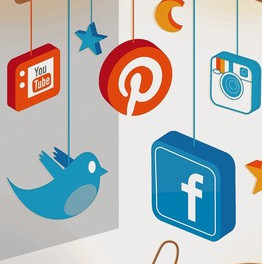Most of us will recall a time when our parents threatened to embarrass us by delving into the old draws and picking out the dusty photo album complete with nudie baby photos and embarrassing childhood moments.
For many years they became a weapon for mothers wishing to make their sons blush while they regale their latest partner with all those long lost pictorials from many years ago. They were splashed over feature walls at 21st birthday parties, where attendees would giggle at how cute and adorable you once were before you promptly stash those photos away to be confined to the dark draws where they are forgotten until the next occasion calls.
Yet the days of the old baby photo album have given way to Facebook, Instagram and a myriad of other social media platforms. What was once a physical photograph inevitably constrained by the devil of time, is now a digital resource with an infinite lifespan, splashed over the circles of the web forever. Scratchy albums in plastic leaflets are forgotten in storage cupboards and dusty basements, but the internet never forgets.
Smitten parents now liberally and regularly share images of their newborns, toddlers and young children on social media, kind heartedly expressing their unconditional love just by posting. Yet as well intentioned and adorable as the baby-hug and hand-hold pics are on our daily news feeds, have we ever asked the following question: how much control do babies and children have over their online presence if their parents have decided it for them?
Did we ever grant them a choice?
We live in a world where we are compelled to share. Privacy is now secondary to awareness. Thoughts, feelings, locations, relationships, life events, boredom, family – they are all fair game for divulging to our network of online contacts. We willingly make the decision to offer companies like Facebook our thought data and our digital photo story, but children don’t have that power of consent.
For many people born post 2010, they will grow to find their online digital story has well and truly developed a detailed plot. Baby pictures from before they could even remember will have been available viewing for comment and approval for any number of years. For some, it may be an exciting experience to explore a written record of who ‘Liked’ them when they were still in the womb, or who left a smitten comment about how cute they were. In fact, I imagine for most, this will be the case.
Yet in a time when leading employers and education experts are warning everyone to take a ‘careful, careful’ approach to their digital presence, is it fair to ask if there is a downside to so freely sharing our loved ones’ stories online?
Most will say that it is harmless since the target audience is only friends and family and the general public are hidden safely from view. This may very well be the case. In most instances, parents are careful and display due diligence over the privacy and protection of their family.
But that doesn’t answer that other question: where was the choice? The great majority of our generation made the conscious decision to expose our lives online. Yet some didn’t. I know of several people who refuse to partake in social media for a number of reasons. Lack of interest, Luddite attitude, concerns about privacy, non-conformity – to name a few. They’ve seen and heard about the online world, and they refuse to participate.
Such refusal is no longer an option for most newborns thanks to oversharenting. Studies and surveys in recent years indicate that 94 percent of recent parents in the United Kingdom have posted photos of their children online, while the figure stands at over 91 percent in the United States. In Australia and Japan, 81 percent of children under two have some form of digital footprint. It’s too early to say what the result will be from this loss of anonymity, but a whole generation will soon provide the answer.
What will they say ten years from now when they look at the digital archive of their short life? The photographic journey, the places they’ve been, the people they’ve seen, the quirks and idiosyncrasies that define them. Paradoxically, will some teenagers feel unnoticed if they don’t have such an online presence courtesy of their parents? In a world where so much of our identity is subject to obsessive digital detailing, will they have any identity at all?





